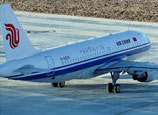
Due to the continuous urbanization process, a growing urban population will generate demand for a better public transportation system, as well as more affordable housing projects.
In September, the National Development and Reform Commission approved 23 urban track-traffic projects, nearly the double of the total number of projects approved in the last three years. The total investment volume of these projects adds up to 832.7 billion yuan.
Chen Peng, a transport industry analyst with China Chengxin International Credit Rating, said the city track-traffic sector will see rapid development as demand is on the rise.
Meanwhile, investment on affordable housing projects only accounts for less than 2 percent of China's total government spending, much lower than the global average, so there is still much room for improvement in that area, Chung said.
In addition, many factories moving to inland provinces in search of lower costs will also boost demand for infrastructure such as railway, airports, and electrical grids in underdeveloped areas.
However, achieving the ambitious investment plan will not be easy, as cash-strapped authorities are facing increasing pressure amid decreasing government income.
To solve the problem, Chung said more financing channels are needed, such as bigger roles for private investors or even overseas investors, as well as debt insurance mechanisms by local governments.
















 10th China Int'l Auto Exhibition to be held in Guangzhou
10th China Int'l Auto Exhibition to be held in Guangzhou


![]()
